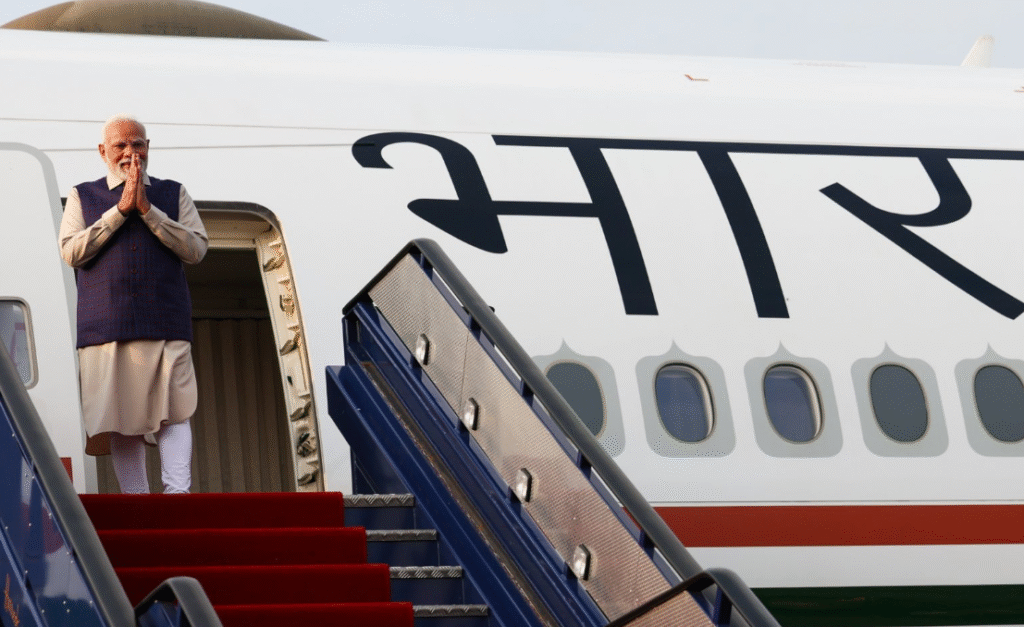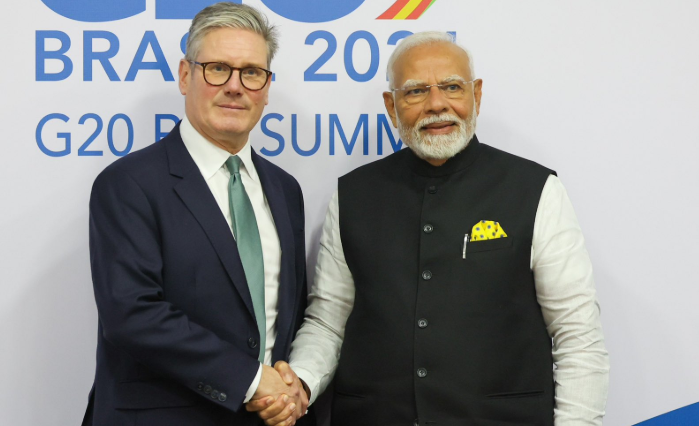A historic UK-India trade deal is set to boost Northern Ireland’s economy by £50 million. With major tariff cuts across manufacturing, whiskey, medtech, and technology sectors, the agreement promises increased exports, new jobs, and economic growth as part of the UK’s Plan for Change.
Historic UK-India Trade Deal to Deliver £50 Million Boost
A landmark trade agreement between the United Kingdom and India is set to bring transformative benefits to Northern Ireland, with new figures revealing a potential £50 million boost to the local economy. The deal, part of the UK government’s “Plan for Change,” aims to reduce or eliminate tariffs across key sectors, promising a bright future for businesses and workers in the region.
On Thursday, July 24, Prime Minister Narendra Modi of India met with UK Prime Minister and Business and Trade Secretary Jonathan Reynolds in London to formalize the signing of the most comprehensive trade deal India has ever agreed to. The Indian delegation, led by Commerce Minister Piyush Goyal, joined in sealing an agreement that not only strengthens economic ties between the two countries but also opens the door to a wave of new opportunities for investment and exports.

The trade deal is already being hailed as a major win, with investment and export announcements amounting to nearly £6 billion and over 2,200 new jobs created across both nations. Northern Ireland is positioned to reap significant gains, particularly across advanced manufacturing, engineering, whiskey production, medical technology, services, and technology sectors.
Currently, 143 Northern Ireland businesses export goods to India, amounting to £65 million in trade last year. These numbers are set to rise thanks to reduced tariffs, easier customs procedures, and fewer trade barriers. One of the biggest beneficiaries will be Northern Ireland’s advanced manufacturing and engineering sectors, which currently provide around 30 percent of local employment. These industries will now enjoy reduced costs through the removal or reduction of tariffs on exported components and finished products.
UK-India Trade Deal:The medical technology sector in Northern Ireland, too, is expected to benefit significantly. Under the agreement, tariffs ranging between 8.25% and 13.75% on medical devices will be either halved or completely removed within a decade, opening access to one of the world’s largest healthcare markets.
UK-India Trade Deal:One of the standout provisions of the deal relates to Irish whiskey, an important export from Northern Ireland. Duties on Irish whiskey, currently at a steep 150%, will be slashed immediately to 75%, and will drop further to 40% over the next ten years. Additionally, producers will now be allowed to use Irish barley or neutral grain spirit and bottle their products in transit to India, thereby expanding the capacity to make the most of reduced tariffs.
UK-India Trade Deal;Hilary Benn, Secretary of State for Northern Ireland, called the deal a game-changer: “This is a landmark deal that will bring real benefits for businesses and workers in Northern Ireland. Northern Ireland’s advanced manufacturing, engineering, and medical technology sectors will see tariffs eliminated or significantly reduced, while Irish whiskey producers will benefit from substantial cuts in duties allowing for increased trade with India.”
UK-India Trade Deal:Business and Trade Secretary Jonathan Reynolds echoed the optimism, stating: “The millions brought to Northern Ireland each year from the deal we’ve signed with India today will be keenly felt across local communities, whether that’s higher wages for workers, more choice for shoppers, or increased overseas sales for businesses.”
UK-India Trade Deal:Philip McKee, Sales Manager at Belfast-based medtech manufacturer Biopanda, welcomed the development. The company, which exports in vitro diagnostic test kits for clinical, veterinary, and food safety uses, sees the deal as an opportunity to further expand in India. “With the introduction of the UK-India FTA, we expect increased trade with the removal of export barriers. This will hopefully increase market access, allowing our distributors throughout India to provide a larger range of our highly accurate clinical diagnostic products at a lower price to the consumer,” said McKee.
UK-India Trade Deal:The trade deal also brings wider economic implications. Workers in Northern Ireland are expected to benefit from a share in the UK-wide wage uplift of £2.2 billion annually. Consumers could also enjoy lower prices and more variety in goods like clothes, shoes, and food products.
UK-India Trade Deal:India, which currently has a trade-weighted average tariff of 15%, will bring it down to 3% under this agreement. This makes it far easier for Northern Ireland firms producing goods such as soft drinks, cosmetics, and medical devices to tap into the vast Indian market, which is forecast to include over 250 million high-income consumers by 2050.
Additionally, Northern Ireland businesses stand to save significantly on imports of components and raw materials used in everything from advanced manufacturing to luxury goods.
This trade agreement aligns with the UK’s broader Industrial and Trade Strategies and focuses on driving growth in sectors where Northern Ireland has strong capabilities. Sectors like agriculture and food, advanced engineering and manufacturing, services, and technology are all poised to benefit substantially from this breakthrough.
As global trade patterns evolve, the UK-India Free Trade Agreement is a strong signal of confidence in Northern Ireland’s economic potential. The region now stands at the threshold of a new chapter of economic opportunity, powered by international cooperation and forward-thinking policy.

